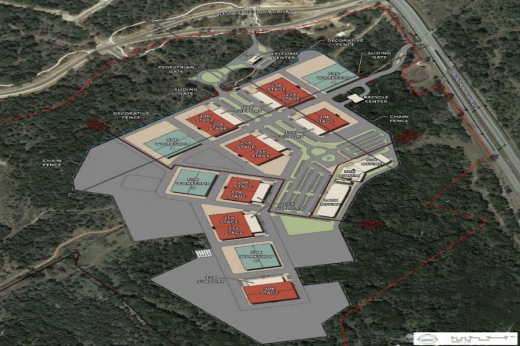After a lengthy discussion, San Marcos City Council took no action on the reconsideration of a Chapter 380 agreement July 5 with Hill Country Studios.
The agreement was originally approved 6-1 at a meeting June 7 with Council Member Maxfield Baker voting against the item.
Two other council members, Saul Gonzales and Alyssa Garza, brought the item up for reconsideration, citing conversations with constituents over environmental concerns as the project is located over a portion of the Edwards Aquifer recharge zone within the La Cima development.
“My motivation to bring forth this item is generally twofold. Firstly, the outpour of community feedback and concern emphasized that there's a very obvious lack of public understanding regarding the process that goes into 380 agreements, specifically in regards to how we balance environmental concerns,” Garza said.
Assistant City Manager Joe Pantalion reiterated the studio is promising its design provides for 48% impervious cover and stormwater recovery mechanisms. Typical projects with similar zoning are allowed up to 80% impervious cover, he said.
“We have a very progressive water quality program, and we have impervious cover limits as 20% for any development over the recharge zone,” Pantalion said.
He added the La Cima development must not exceed 19% impervious cover as averaged over the total area of La Cima, per the development agreements.
The agreement provides financial incentives to build a more than 820,000-square-foot film and video production facility in La Cima, according to city documents.
The location of the proposed studio, 6202 W. Center Point Road, would be built on a 75-acre portion of a 209-acre tract in the La Cima development. The build-out of the studio is expected to be completed by the end of August 2025, and at least 22 full-time employees are required by the end of that year, per the agreement. By the end of the agreement, 44 full-time employees are expected to be maintained.
Capital investment in the project is projected at $267 million, according to city documents. The city will begin allocating tax rebate payments per the Chapter 380 agreement in 2025 at 90%, then at 80% in year two, decreasing by 20% each year and ending in 2030. Those payments could add up to $4.6 million. The city estimates it will retain around $11.5 million over a decade.
While the agreement requires anyone employed to work on the project to make at least $15 an hour, full-time employees are anticipated to make an average salary of $100,000, and more than 1,200 contract workers are expected to make an average of $80,000, said Kelsee Lee Jordan, economic and business development manager for the city, at the June 7 meeting.
Under the agreement, San Marcos CISD will not provide any tax abatement and is projected to collect an estimated $3.1 million a year in property taxes over a 10-year period beginning in 2025, according to the presentation.





